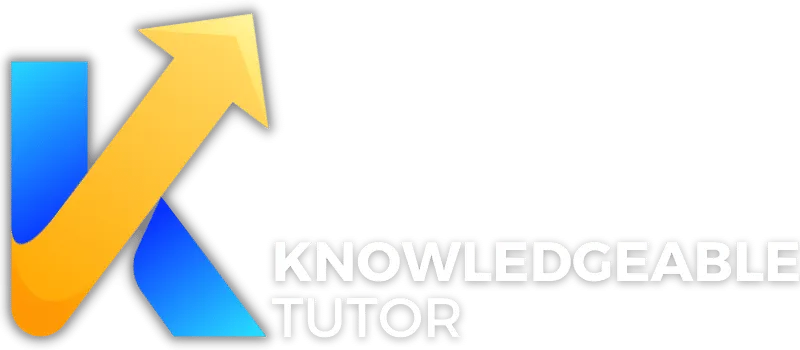Monetizing Your Expertise Beyond Basic Tutoring Services

Fanie Naude
CEO & Founder of Knowledgeable Tutor, Buznet Direct, YMC & Naude Consulting

Fanie Naude
CEO & Founder of Knowledgeable Tutor, Buznet Direct, YMC & Naude Consulting

The Imperative of Diversifying Your Tutoring Income Streams
Introduction
In a rapidly evolving educational landscape, tutors are no longer confined to the traditional roles of providing one-on-one lessons or group classes. The digital age has opened up a plethora of opportunities to monetize their expertise beyond these basic services. As Warren Buffet wisely said, "Never depend on a single income. Make investments to create a second source."
The Need for Diversification
The concept of diversification is not new; it's a financial principle that has been applied across various industries. For tutors, diversification is not just a buzzword but a necessity for long-term sustainability. According to a LinkedIn article, diversifying your online tutoring income can help you find your niche, create multiple offerings, and protect yourself against unexpected setbacks.
Financial Stability
- Multiple Income Streams: Having multiple income streams can act as a financial safety net. If one stream experiences a downturn, the others can compensate.
- Risk Mitigation: Diversification helps in spreading the risk. A decline in student enrollments for tutoring sessions can be offset by income from other sources like online courses or consultation services.
Market Volatility
- Adaptability: The education sector is susceptible to changes in technology, regulations, and consumer preferences. Diversification allows you to adapt quickly.
- Competitive Edge: Offering a variety of services can make you more appealing to a broader audience, giving you a competitive advantage.
Case Study: University Revenue Diversification
Universities have long understood the importance of diversifying revenue streams. A Medium article discusses how universities generate revenue from a range of alternative sources besides on-campus degrees and research. This strategy could be a lesson for tutors to diversify their income streams effectively.
Identifying Your Unique Expertise
Before you can diversify, you need to identify what sets you apart in the crowded tutoring market.
Skill Assessment
- Self-Evaluation: List down your skills, qualifications, and areas where you excel.
- Market Research: Identify gaps in the market where your skills can be most effectively utilized.
Unique Selling Proposition (USP)
- Value Addition: What extra value can you provide that others can't? It could be your teaching methodology, specialized subject knowledge, or even soft skills like excellent communication.
- Branding: Your USP is a crucial part of your brand. Make it a focal point in your marketing strategies.
Real-Life Example: Specialized Music Tutor
A tutor specializing in flute education diversified her income by offering specialized courses, writing an e-book, and even selling flute accessories. She effectively utilized her unique expertise in flute education to create multiple income streams, as discussed in this Flute Center article.
Tables and Data
| Factors for Diversification | Importance |
|---|---|
| Financial Stability | High |
| Market Volatility | Medium |
| Unique Expertise | High |
By understanding the need for diversification and identifying your unique skills, you lay the foundation for a sustainable and profitable tutoring business. The next sections will delve into specific strategies to monetize your expertise effectively.

Unlocking the Potential of Online Courses and Workshops
Online Courses and Workshops: A Lucrative Avenue
The realm of online courses and workshops offers a fertile ground for tutors to monetize their specialized knowledge. As the famous educator Peter Drucker once said, "Knowledge has to be improved, challenged, and increased constantly, or it vanishes." Online courses provide a scalable way to disseminate your expertise to a global audience.
Why Online Courses?
- Scalability: Unlike one-on-one tutoring, online courses can be sold to an unlimited number of students.
- Passive Income: Once created, these courses can generate income with minimal ongoing effort.
- Global Reach: The internet erases geographical boundaries, allowing you to reach students worldwide.
Choosing the Right Platform
Selecting the right platform to host your courses is crucial. According to a Zapier article, some of the best platforms to create and sell online courses in 2023 include Udemy, Skillshare, and Teachable. Each platform has its pros and cons, so choose one that aligns with your needs.
- Udemy: Good for beginners but takes a significant share of your revenue.
- Skillshare: Focuses on creative courses and pays based on minutes watched.
- Teachable: Offers more control over pricing and branding but comes with a monthly fee.
Curriculum Design
Designing an effective curriculum is the backbone of your online course. A Kajabi guide suggests the following steps:
- Course Outline: Break down the course into modules and lessons.
- Interactive Elements: Include quizzes, assignments, and interactive videos to engage students.
- Supplementary Materials: Provide handouts, slides, and additional reading materials.
Pricing Strategies
Determining the right price for your course can be challenging. According to eLearning Industry, you should consider factors like the course's value, your target audience's purchasing power, and market rates.
- Tiered Pricing: Offer multiple packages with varying levels of access and resources.
- Discounts and Offers: Use early-bird discounts or bundle offers to attract students.
Real-Life Example: Yoga Instructor's Success
A Yoga instructor leveraged her expertise to create a series of online Yoga courses. She used Teachable to host her courses and employed tiered pricing to cater to different student needs. Her courses became a hit, generating six figures in the first year.
Consultation Services: The Power of Specialized Knowledge
If you have specialized knowledge in a particular subject or area, consultation services can be a lucrative addition to your income streams.
Types of Consultation Services
- Academic Counseling: Help students with course selection, study strategies, and exam preparation.
- Career Guidance: Use your industry connections and knowledge to guide students towards a successful career path.
Setting Your Fees
- Hourly Rate: Charge based on the time spent in consultation.
- Package Deals: Offer a set of consultation sessions at a discounted rate.
Real-Life Example: Math Tutor Turned Consultant
A Math tutor with over 20 years of experience transitioned into offering consultation services. He provided academic counseling and even helped students prepare for Math competitions. His consultation services became an additional revenue stream, complementing his tutoring income.
Tables and Data
| Revenue Stream | Potential Earnings |
|---|---|
| Online Courses | High |
| Consultation Services | Medium-High |
In summary, online courses and consultation services offer promising avenues for tutors to diversify their income streams. The key lies in leveraging your unique expertise and choosing the right strategies and platforms for maximum impact.

Leveraging Written Content: E-books and Educational Materials
E-books: A Treasure Trove of Knowledge
The written word has always been a powerful tool for education. In the digital age, e-books offer an excellent medium for tutors to share their expertise and generate additional income. As the renowned author Stephen King once said, "Books are a uniquely portable magic."
Why E-books?
- Low Production Cost: Unlike traditional publishing, e-books require minimal investment.
- Global Distribution: E-books can be sold worldwide, expanding your reach.
- Evergreen Content: Once published, an e-book can continue to generate revenue over time.
Writing Your E-book
Writing an e-book requires a structured approach. According to a guide on Truth for Teachers, the first step is to outline your book's content meticulously.
- Topic Selection: Choose a subject that aligns with your expertise and is in demand.
- Research: Conduct thorough research to support your content.
- Outline: Create a detailed outline, breaking down each chapter and sub-section.
Publishing Platforms
There are various platforms where you can publish your e-book. A SelfPublishing.com article suggests using Amazon KDP as one of the most straightforward platforms for e-book publishing.
- Amazon KDP: Offers a wide audience but takes a percentage of sales.
- Apple Books: Good for targeting Apple users.
- Direct Sales: Sell directly from your website to keep all profits.
Marketing and Sales
- SEO Optimization: Use relevant keywords in your book title and description.
- Social Media: Leverage social media platforms to promote your e-book.
- Bundling: Offer your e-book as a part of a course package for added value.
Real-Life Example: The Success of a History Tutor
A history tutor wrote an e-book about "The Impact of World War II on Modern Politics." He used Amazon KDP for publishing and marketed the book through his blog and social media. Within a year, the book had sold over 5,000 copies.
Educational Materials: Beyond the Book
E-books are just the tip of the iceberg. Tutors can also create and sell various educational materials like worksheets, lesson plans, and quizzes.
Types of Educational Materials
- Worksheets: Topic-specific worksheets for practice.
- Lesson Plans: Detailed plans that other tutors can use for their sessions.
- Interactive Quizzes: Quizzes that can be integrated into online courses or sold separately.
Platforms for Selling
- Etsy: A popular platform for selling educational materials.
- Teachers Pay Teachers: Specifically designed for educators to sell their materials.
Real-Life Example: A Science Tutor's Repository
A science tutor created a repository of worksheets, lesson plans, and interactive quizzes. She sold these on Teachers Pay Teachers and generated a steady income alongside her tutoring.
Tables and Data
| Content Type | Potential Earnings | Platform Recommendations |
|---|---|---|
| E-books | High | Amazon KDP, Apple Books |
| Educational Materials | Medium | Etsy, Teachers Pay Teachers |
E-books and educational materials offer a fantastic opportunity for tutors to monetize their expertise in a scalable way. The key is to produce high-quality, valuable content that meets the needs of your target audience.

Frequently Asked Questions (FAQs) on Monetizing Your Expertise Beyond Basic Tutoring Services
Introduction to FAQs
The journey of monetizing your expertise as a tutor involves various facets, from online courses to e-books and consultation services. This FAQ section aims to address common questions that may arise as you explore these avenues.
FAQs
1. What are the benefits of diversifying my income as a tutor?
Diversifying your income streams provides financial stability, mitigates risks, and allows you to adapt to market changes. It also gives you a competitive edge by appealing to a broader audience.
2. How can I create and sell online courses?
You can use platforms like Udemy, Skillshare, or Teachable to host your courses. The key steps include choosing a subject, designing the curriculum, and setting the right pricing strategy. For more details, you can refer to this Zapier article.
3. What should I consider when publishing an e-book?
Select a topic that aligns with your expertise, conduct thorough research, and create a detailed outline. Platforms like Amazon KDP and Apple Books are popular for e-book publishing. For a comprehensive guide, check out this SelfPublishing.com article.
4. Can I offer consultation services along with tutoring?
Yes, you can offer specialized consultation services like academic counseling or career guidance. You can charge based on an hourly rate or offer package deals.
5. What types of educational materials can I sell?
You can create and sell worksheets, lesson plans, and interactive quizzes. Platforms like Etsy and Teachers Pay Teachers are good options for selling these materials.
6. How do I market my diversified services?
SEO optimization, social media marketing, and bundling are effective ways to market your services. For more insights on advertising your tutoring business, refer to this SmartyAds article.
7. How can I maximize my tutoring revenue?
Optimizing your service offerings, pricing strategy, and marketing efforts can help maximize revenue. For more tips, you can read this Appointy blog.
8. Are there any platforms to help me create a tutor profile?
Yes, a tutor app allows you to create a profile, list your services, and showcase your expertise. For a quick guide on on-demand tutor app development, you can visit Idea Usher.
9. How can I monetize my skills and knowledge effectively?
You can monetize through online courses, e-books, consultation services, and selling educational materials. For a comprehensive guide, check out this Edupreneurr article.
10. Are there any unique challenges in diversifying my tutoring income?
Yes, challenges include maintaining quality across different services, effective marketing, and managing multiple income streams. However, the benefits often outweigh these challenges.
Tables and Data
| FAQ Topic | Relevant Article Source |
|---|---|
| Online Courses | Zapier |
| E-books | SelfPublishing.com |
| Marketing | SmartyAds |
| Maximizing Revenue | Appointy |
This FAQ section aims to be a one-stop resource for tutors looking to diversify their income streams. Each question is designed to provide actionable insights, backed by credible sources, to help you navigate the complexities of monetizing your expertise beyond basic tutoring services.

